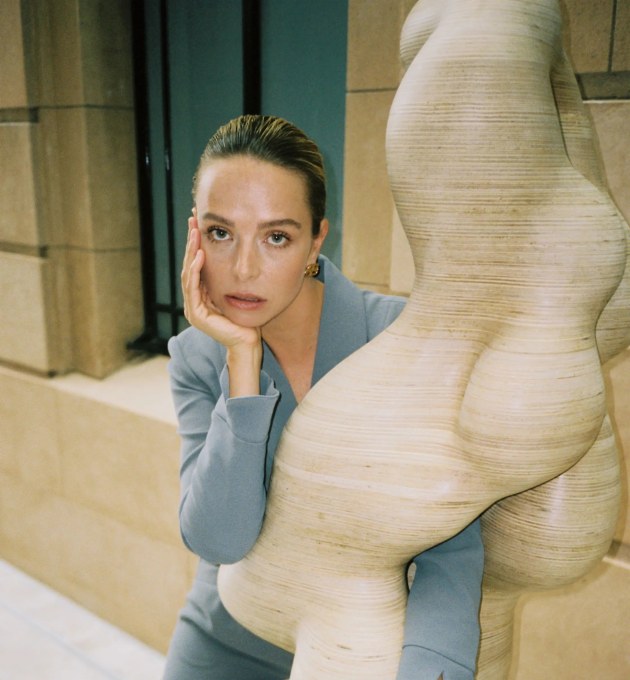Imogen Bailey explores what the consortium of private investors is doing with the Australian Fashion Labels assets.
When Australian Fashion Labels entered administration, a group of passionate South Australians were determined to not let the brand fade away.
The consortium of Australian private investors called themselves International Fashion Labels and purchased the assets of the former business in March.
"It was a clean asset purchase and we started from effectively ground zero," CEO Sean Ebert explains.
"Zero revenue and zero people in the set up, so we had to really focus on bringing the existing talent back that was loyal to the company, and who really understood the customer, customer base and the brands," he says.
As new owners of the BNKR platform and brands Finders Keepers, Cameo Collective, Keepsake and The Fifth Labels’ stock, International Fashion Labels (IFL) got to work clearing the inventory for business moving forward.
To do this, IFL launched the largest online wholesale sale in the history of the previous company, listing 30,000 units for sale on the site.
"That was really our method of giving back to the loyal customers that had supported the business before it went into administration," Ebert explains.
"So that really was the main focus, to get the business back into a sustainable operation," he says.
Moving forward, IFL has its sights set on cultivating local talent, expanding its brands across more eCommerce platforms and investing more heavily in sustainable fashion.
Ebert explains that the support of local talent will go beyond just individuals.
"The most important thing is to continue to support and nurture that local design talent, in particular through a lot of the education providers such as TAFE and some of the design schools.
"Then as we grow, we are looking at how we can also support other fashion labels – particularly Australian fashion designers and labels that need access to the market.
"So, in the medium term we'll be looking at how we can use our infrastructure to best support them as well as through our BNKR online platform," he says.
When it comes to eCommerce growth, Ebert adds that the rapid adoption of eCommerce during COVID has positioned the business well to execute its eCommerce-focused strategy.
"We see huge potential in all global markets for the adoption and the growth of eCommerce and fashion is really well positioned following COVID.
"This is probably an amazing opportunity and timing for us to capitalise on that and take a leadership role in building the business into that new way of working, in particular online.
"So, it's about looking at all the labels that we have in the database and really expanding into larger eCommerce platforms," he says.
Ebert adds that the Chinese market will remain a key focus for IFL moving forward.
"It's actually one of our strengths – that part of the business traded all the way through the administration.
"The Cameo brand is really well recognised in China and we've got two flagship Tmall sites in China.
"So the eCommerce combined with strategic wholesale in China will be a really important part of our future growth," he says.
One element that is not so integral in the short term is bricks and mortar retail.
"We actually don't have any retail stores open," Ebert says.
"In the short term, we're unlikely to look at that, the emphasis is really on eCommerce and key wholesale relationships.
"We will look at all those options, but primarily, it's going to be eCommerce," he says.
On the sustainability front, Ebert explains that the business will look to improve not only its products, but its entire operations.
"The one thing that the investors, the management and the team in the company are really quite passionate about is sustainability.
"We see a huge opportunity to really take the business all the way through from, how the business operates to the fabrics we use, and the entire life cycle of sustainability.
"That's not only just for the products we design, but how the business is actually run and operated through every aspect of what we do.
"One of the designers that has come back into the team has a really, really strong background in sustainability, which is giving us that internal sort of advantage as well.
"We really do believe it needs to run through the whole business, from top to bottom right through to the products we design and how we engage customers as well," he says.
Ebert adds that a fresh look at the business’ suppliers will also help the business determine if it is sourcing sustainably.
"Sustainability goes all the way down to our suppliers; are our suppliers sustainable?
"Do they have the practices in place that align with our vision of sustainability?
"We call it the life cycle because it goes all the way through from, the start of the decision-making process, and the sourcing all the way to the end customer, that continuous loop," he says.
This feautre first appeared in the May-June edition of Ragtrader. Subscribe to the magazine here.





